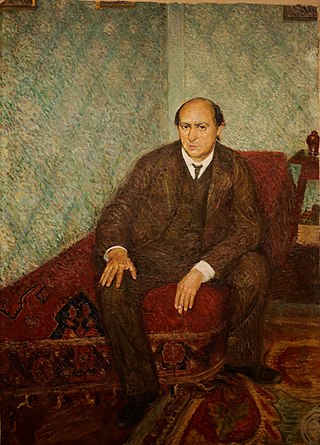
Atonality in its broadest sense is music that lacks a tonal center, or key. Atonality, in this sense, usually describes compositions written from about the early 20th-century to the present day, where a hierarchy of harmonies focusing on a single, central triad is not used, and the notes of the chromatic scale function independently of one another. More narrowly, the term atonality describes music that does not conform to the system of tonal hierarchies that characterized European classical music between the seventeenth and nineteenth centuries. "The repertory of atonal music is characterized by the occurrence of pitches in novel combinations, as well as by the occurrence of familiar pitch combinations in unfamiliar environments".

Musical set theory provides concepts for categorizing musical objects and describing their relationships. Howard Hanson first elaborated many of the concepts for analyzing tonal music. Other theorists, such as Allen Forte, further developed the theory for analyzing atonal music, drawing on the twelve-tone theory of Milton Babbitt. The concepts of musical set theory are very general and can be applied to tonal and atonal styles in any equal temperament tuning system, and to some extent more generally than that.

Benjamin Aaron Boretz is an American composer and music theorist.

Allen Forte was an American music theorist and musicologist. He was Battell Professor Emeritus of the Theory of Music at Yale University and specialized in 20th-century atonal music and music analysis.
Arthur Victor Berger was an American composer and music critic who has been described as a New Mannerist.
Diatonic set theory is a subdivision or application of musical set theory which applies the techniques and analysis of discrete mathematics to properties of the diatonic collection such as maximal evenness, Myhill's property, well formedness, the deep scale property, cardinality equals variety, and structure implies multiplicity. The name is something of a misnomer as the concepts involved usually apply much more generally, to any periodically repeating scale.

The Symphony of Psalms is a choral symphony in three movements composed by Igor Stravinsky in 1930 during his neoclassical period. The work was commissioned by Serge Koussevitzky to celebrate the 50th anniversary of the Boston Symphony Orchestra. The symphony derives its name from the use of Psalm texts in the choral parts.
David Benjamin Lewin was an American music theorist, music critic and composer. Called "the most original and far-ranging theorist of his generation", he did his most influential theoretical work on the development of transformational theory, which involves the application of mathematical group theory to music.
The Group for Contemporary Music is an American chamber ensemble dedicated to the performance of contemporary classical music. It was founded in New York City in 1962 by Joel Krosnick, Harvey Sollberger and Charles Wuorinen and gave its first concert on October 22, 1962 in Columbia University's MacMillin Theatre. Krosnik left the ensemble in 1963. It was the first contemporary music ensemble based at a university and run by composers.
The Symphonies of Wind Instruments is a concert work written by Igor Stravinsky in 1920, for an ensemble of woodwind and brass instruments. The piece is in one movement, lasting about 9 minutes. It is dedicated to the memory of Claude Debussy, who died in 1918, and was premiered in London on 10 June 1921, conducted by Serge Koussevitzky.

Drei Klavierstücke, Op. 11, is a set of pieces for solo piano written by the Austrian composer Arnold Schoenberg in 1909. They represent an early example of atonality in the composer's work.
Edward Toner Cone was an American composer, music theorist, pianist, and philanthropist.
The Journal of Music Theory is a peer-reviewed academic journal specializing in music theory and analysis. It was established by David Kraehenbuehl in 1957.

Elaine "Ray" Barkin née Radoff was an American composer, writer, and educator.
Variations: Aldous Huxley in memoriam is Igor Stravinsky's last major orchestral composition, written in 1963–64.

James K. Randall was an American composer, music theorist, and early adopter of electronic music. At the time of his death he was Professor of Music Emeritus at Princeton University.
John Rahn, born on February 26, 1944, in New York City, is a music theorist, composer, bassoonist, and Professor of Music at the University of Washington School of Music, Seattle. A former student of Milton Babbitt and Benjamin Boretz, he was editor of Perspectives of New Music from 1983 to 1993 and since 2001 has been co-editor with Benjamin Boretz and Robert Morris.

Jerome Joseph Kohl was an American musicologist, academic journal editor, and recorder teacher. A music theorist at the University of Washington, he became recognized internationally as an authority on the music of Karlheinz Stockhausen.








